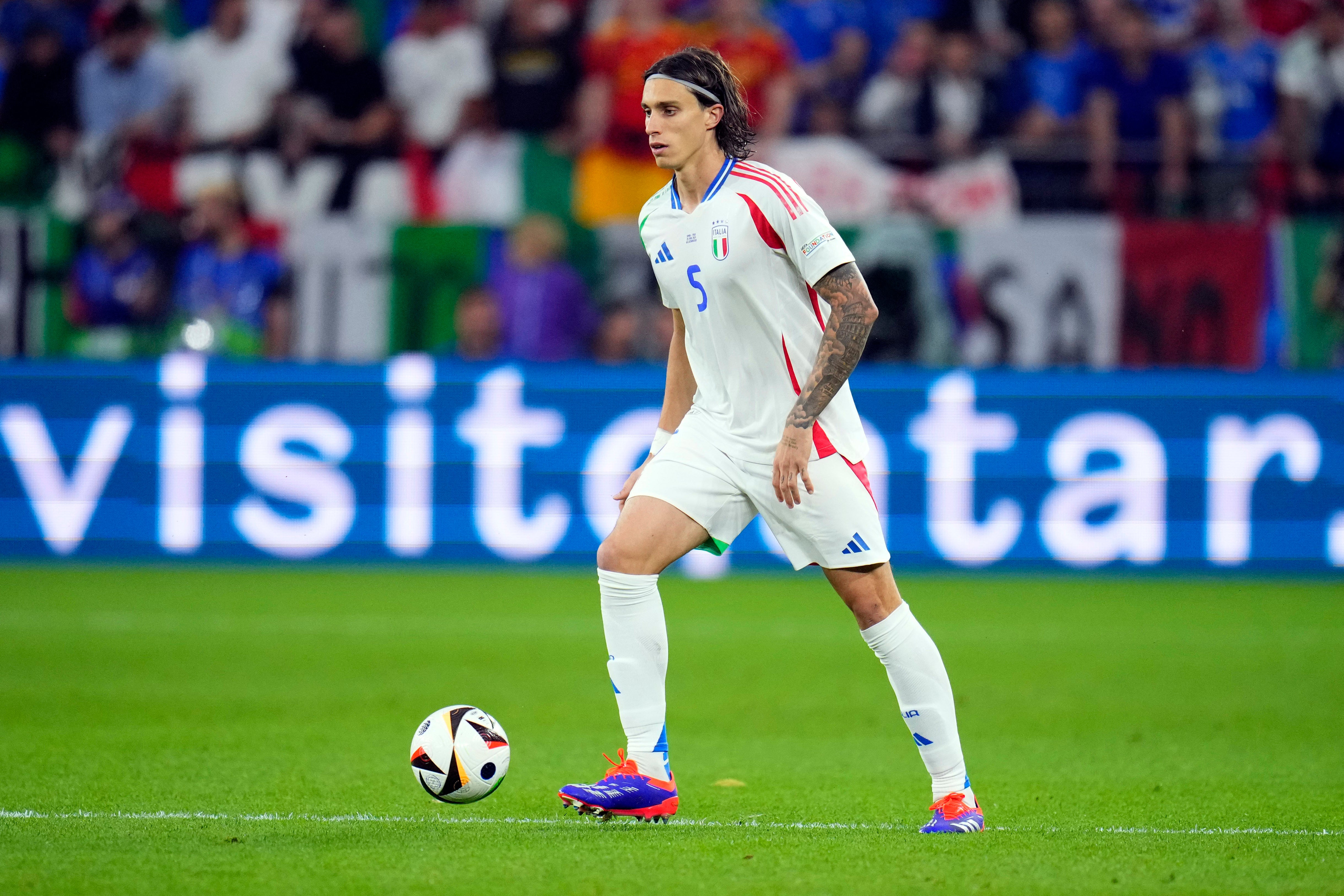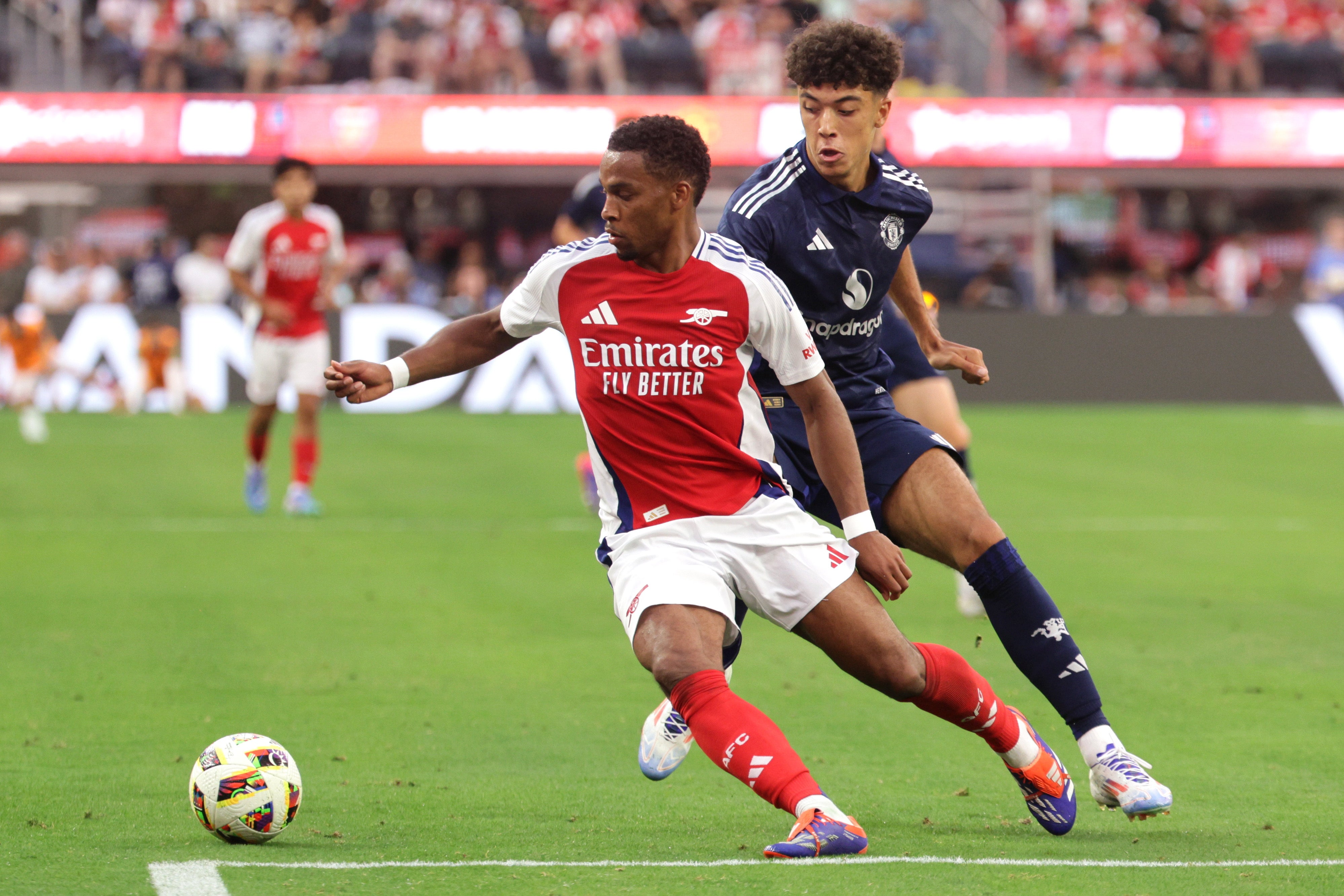This website uses cookies so that we can provide you with the best user experience possible. Cookie information is stored in your browser and performs functions such as recognising you when you return to our website and helping our team to understand which sections of the website you find most interesting and useful.
Support truly
independent journalism
Our mission is to deliver unbiased, fact-based reporting that holds power to account and exposes the truth.
Whether $5 or $50, every contribution counts.
Support us to deliver journalism without an agenda.

Louise Thomas
Editor
Mikel Arteta has a summer ritual. The Arsenal manager tends to sign a left-back; but with the caveat that they are more than a left-back to such an extent that that some might not describe themselves as such at all. Riccardo Calafiori arrives in London as one of the breakout stars of first the Serie A season and then Euro 2024; but each as a central defender. Yet it is not just the primacy of the partnership of Gabriel Magalhaes and William Saliba for Arsenal that suggests the Italian is likely to be deployed to their left.
His price tag - £42m - and status as Arsenal’s biggest summer signing so far suggest that he has not been recruited as a reserve, though he would provide a high-quality alternative in the event of injury to Arteta’s regular double act. Instead, he has the look of a left-sided Ben White; a centre-back reinvented as a full-back by the Spaniard. Or, given Calafiori’s background as a full-back before Thiago Motta took him to a new level as a central defender, perhaps a return to his original duties.
There are several instructive elements. One is that, despite posting the best defensive record last season – conceding five goals fewer than Manchester City, 12 fewer than Liverpool and 22 fewer than Everton, the fourth most frugal side – Arteta’s immediate target was to improve the defence again.
Another is that, while he had continuity in the rest of the defensive unit, there was a four-way job-share at left-back, all among Arteta signings defined in part by versatility. Takehiro Tomiyasu (bought in the summer 2021), Oleksandr Zinchenko (summer 2022), Jakub Kiwior (January 2023) and Jurrien Timber (summer 2023) may be seen as two right-backs, a midfielder and a central midfielder; Calafiori can look an upgrade on Kiwior, another left-footed central defender and it would feel unsurprising if the Pole was deemed dispensable now.

But within that quartet there are different situations. The experiment with Oleksandr Zinchenko may now be abandoned, as though initially tactically ideal and then unsuitable; inverting into midfield, with a playmaker’s assurance in possession, the Ukrainian added another dimension. Yet the trade-off from defensive deficiencies and a susceptibility to the counter-attack, and perhaps a lack of height, now might be judged too great; especially if the Arteta formula is built around a rationale that any goal conceded could cost the title and that a back four needs to comprise a quartet of speedier, sizeable figures, each more strapping and solid.
Yet the experiment with Jurrien Timber is neither a success nor a failure. The Dutchman started one league game last season; it was the first and he was injured. The evidence from twin pre-seasons is that he can add an ability to move into midfield, allying tactical nous with a progressiveness to his passing that Kiwior and Tomiyasu lack, to offer much of what Arteta wants; in that sense, the wait for Timber and the assumption he would slot into the side this season rendered the move for Calafiori a surprise.

Meanwhile, it may be worth noting that the only specialist left-back Arteta has bought, Nuno Tavares, has spent the last two seasons out on loan, at Marseille and Nottingham Forest; the only one to have been a regular first-choice for him, Kieran Tierney, was also loaned out last season. The Scot was downgraded as the job description changed, with a lesser emphasis on overlapping and crossing. Part of the nature of Arteta’s Arsenal is that every youthful rebuild can offer the illusion of longevity before the Spaniard’s restlessness leads to seemingly pivotal figures falling from favour: go back to 2021-22 and Arsenal’s surprise challenge for a Champions League spot and three who underpinned their improvement were Aaron Ramsdale, Emile Smith Rowe and Tierney, each young enough to spend a decade in the team; now the transfer window could close with each at a new club.
Go back still further and Arteta’s last trophy, the 2020 Community Shield, came with Tierney on the left of a back three and a man-of-the-match performance from his left wing-back: Ainsley Maitland-Niles, who has played for four other clubs since then, whose name is a throwback to an earlier era and whose favourite position was centre-midfield.
So Arteta’s evolution tactically can be traced through his left-backs: the midfielder as wing-back, the conventional left-back after a shift to a back four, the inverted midfielder, the centre-back. If the signing of Zinchenko brought suggestions that Arteta was seeking to copy his mentor, Pep Guardiola, the use of Kiwior and, probably, Calafiori again indicates that where the Manchester City manager leads, his Arsenal counterpart follows. The Italian has spoken of his admiration for John Stones; his more immediate task, however, will be to emulate Nathan Ake and Josko Gvardiol, the centre-backs repurposed on the left for City. And Arteta, forever striving to get better, seems to look at the left of his defence every year and to players who are not just left-backs.



 Africana55 Radio
Africana55 Radio 
